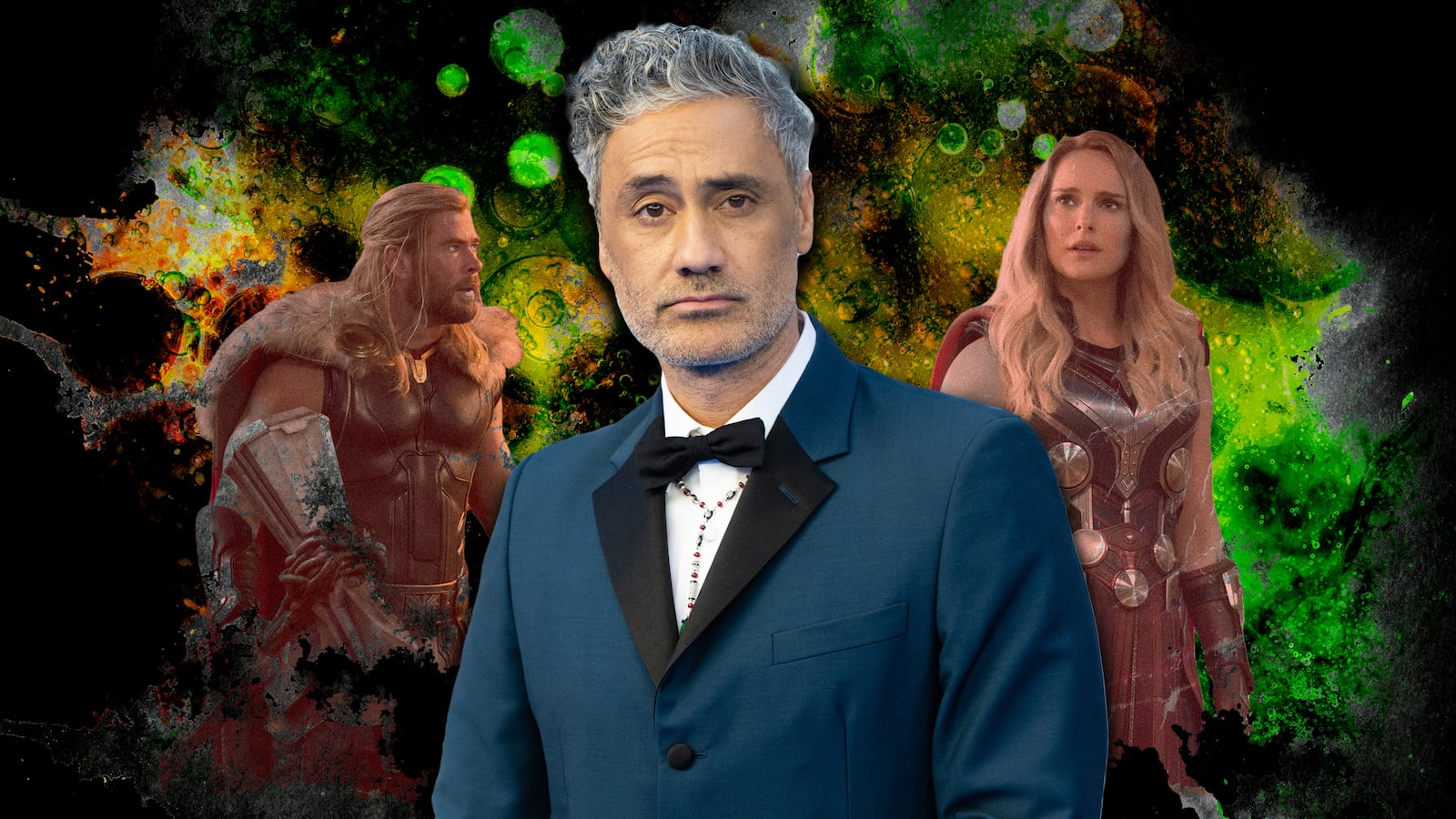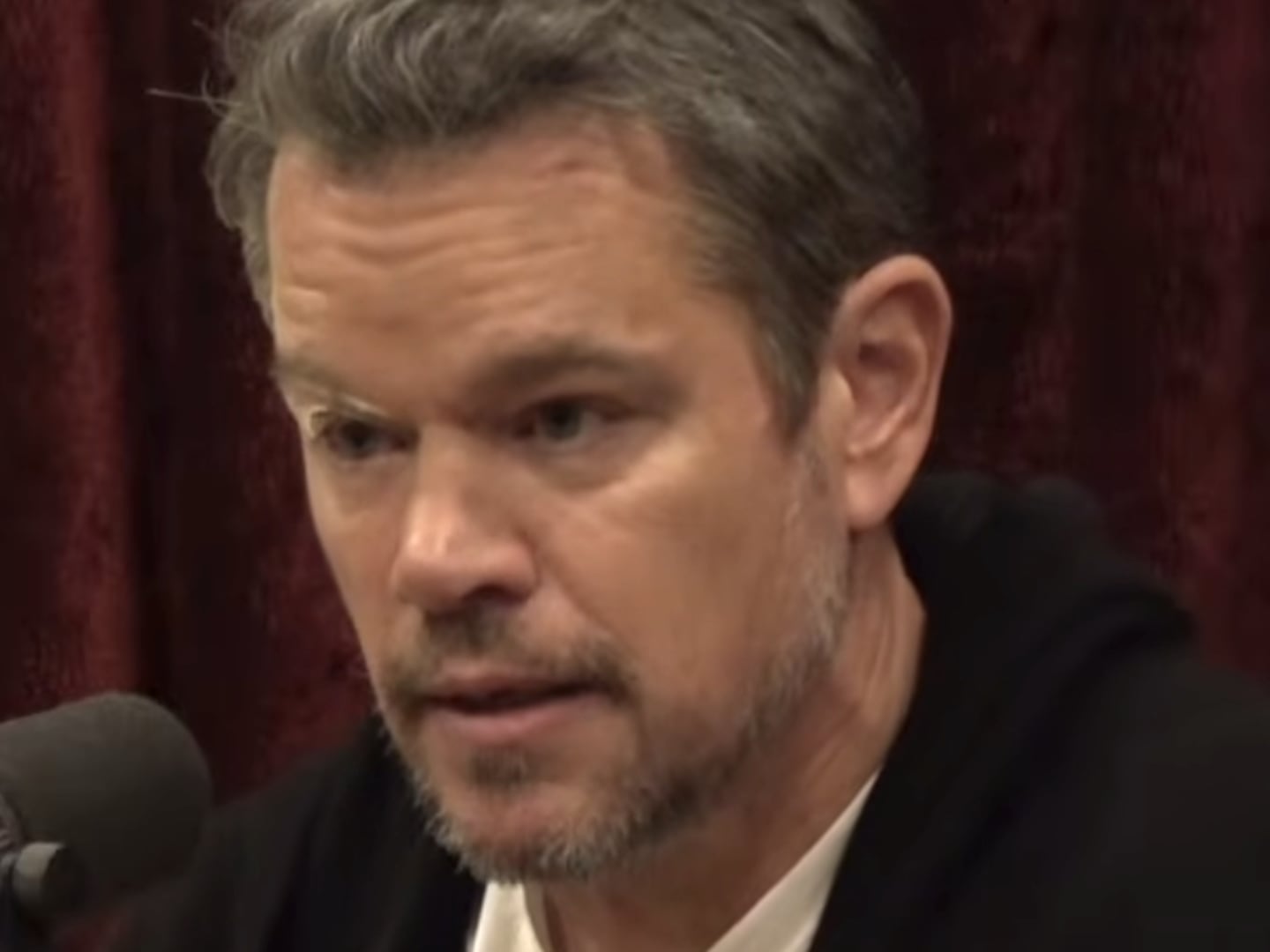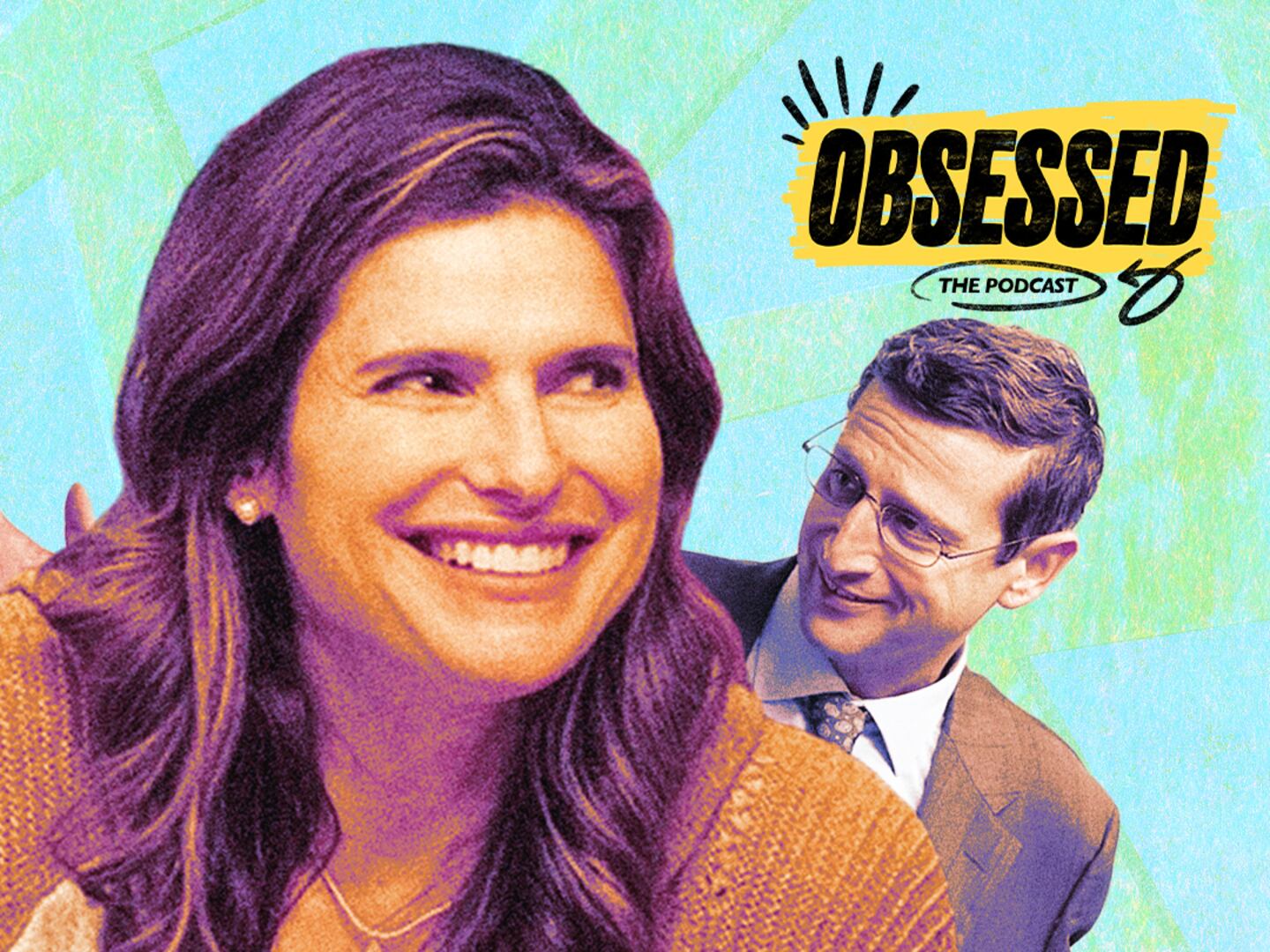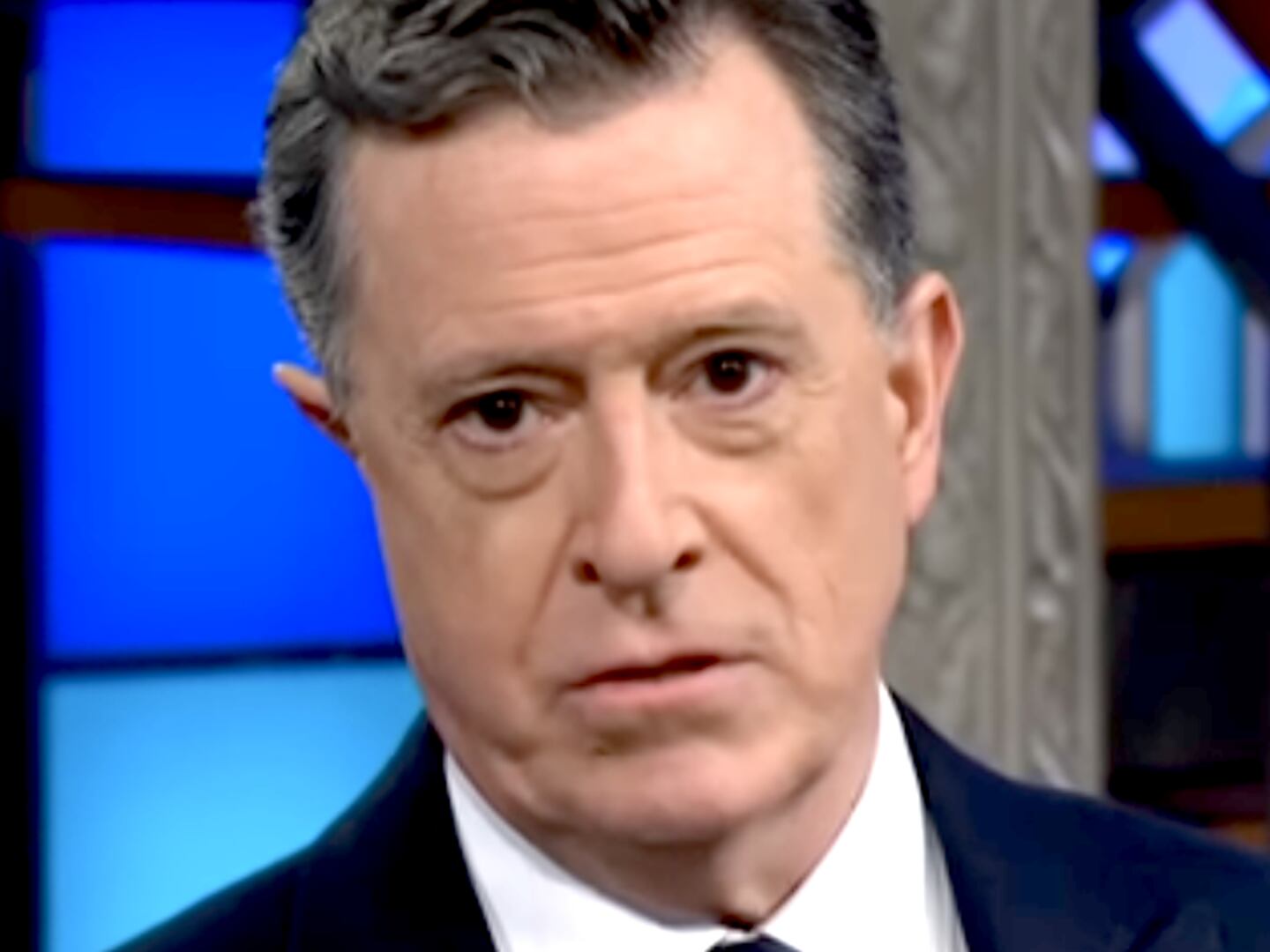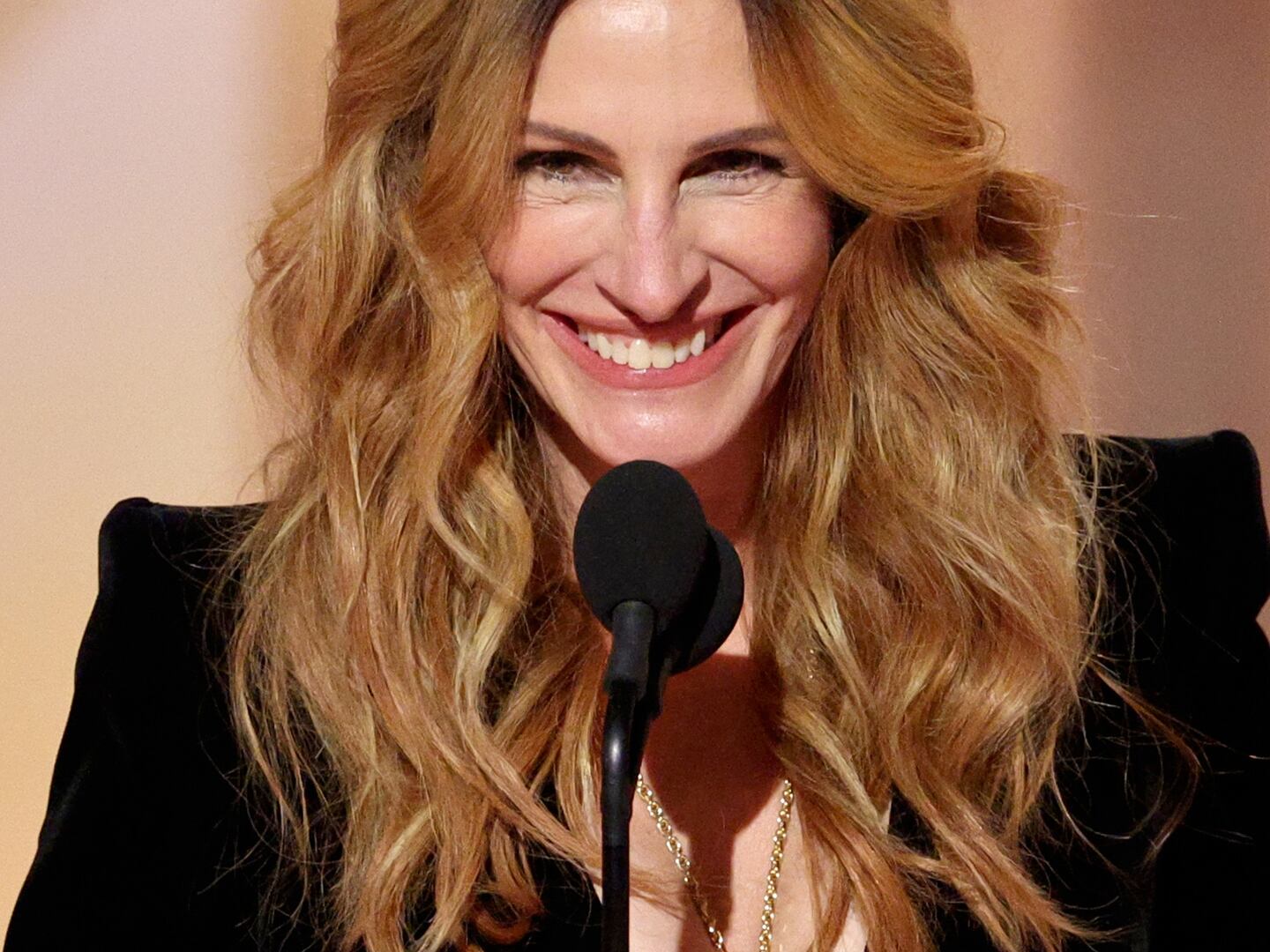If you’re so unfortunate as to spend a considerable amount of time of your day or week in the absolute worst place in the world—Twitter—you may have noticed that filmmaker Taika Waititi is facing some backlash.
The New Zealand director of Thor: Love and Thunder is typically revered by those who lurk in the geekier corners of the internet, thanks to his genre work including the films What We Do in the Shadows and Jojo Rabbit. He recently had the biggest opening weekend of his career with the latest installment of the Marvel Cinematic Universe, which is already one of the highest-grossing movies of 2022 so far.
Arguably more than any other filmmaker in the franchise, Waititi has become its most adored and familiar creative face. Not even the Russo brothers, who made the second highest-grossing film of all time with Avengers: Endgame, have been able to command the enthusiasm and fan investment that Waititi has. But that comes with a major downside, as evidenced by the way that so many people online are now talking about “the inevitable backlash” he’s confronting.
Waititi hasn’t committed any crimes or fully put his foot in his mouth like some celebrities of recent years. But the mixed reviews for Love and Thunder, which are some of the weakest in his career, ushered in a renewed influx of extreme emotional responses.
Gawker declared that audiences had reached “Maximum Taika,” saying that he “needs a sabbatical” due to media overload and his “schtick” getting old. Audiences took issue with his overblown declaration of Love and Thunder's queer-positive content, which greatly overstated the movie's actual representation.
Online chatter on that topic became even more heated when one viral tweet tried to assert that Waititi, who has never publicly declared his sexuality, “is undermining heteronormativity in every film/show he makes.”
Others have accused him of abandoning his roots and becoming yet another Hollywood sell-out. Many took it very personally when he left his wife and began dating musician Rita Ora, with whom he now has a very public, very PDA-heavy relationship.
The characteristics that made him beloved, like his sense of humor and irreverence on the promotional circuit being, are suddenly being viewed as “cringe” and examples of why he’s no longer cool to love. It’s a reminder that it takes very little to go from being the nation’s sweetheart to yet another fad on the pile.
There is nothing new about the rhetoric Waititi is facing, and it’s fascinating how unchanging the narrative is when transferred to other celebrities.
Two names mentioned frequently when discussing Waititi’s current conundrum are Lin-Manuel Miranda and John Mulaney, two very popular men with large fan followings who faced varying degrees of pushback from the same people who once adored them. Miranda, once prized for his earnest theater kid energy, was suddenly “too much” and his work representative of a blindly privileged political era.
Many accused Mulaney of falsehoods regarding his comedic image as a loving wife guy when it was revealed that he had split from Anna Marie Tendler and gotten Olivia Munn pregnant following a stint in rehab. The former’s “crimes”—as ridiculous as it is to call them that, but which the Extremely Online crowd does—are obviously very different to the latter’s. But the tone and focus of the ways the discussion changed around both men are eerily similar.
For a period, like Waititi, fandom’s lavish declarations of love towards these figures couldn’t have been more reverent. It wasn’t just that they were talented, it was that the work they did was Important. When the rose-tinted glasses were tossed aside, the mood drastically changed to their work (and the creators themselves) being Bad. Miranda was described as a “symbol of millennial cringe”, and Mulaney was decried for letting his fans down by not being the person he projected through his stand-up. The fervor of the criticism went immediately from 0 to 100 with no stops or nuances in-between.
At the heart of this dichotomy is a reminder of how curiously stark and polarized much of our online discourse is. The binary is clear, with little room for the nuanced realities of being a messy human being who makes mistakes, or who isn’t hyper-aware of other people’s opinions. The celebrities we obsess over are either glowing icons of perfection and progressive allyship or they’re Problematic in ways that are numerous, shameful, and unforgivable.
We’ve seen how this divide can be used to abuse others, particularly women and people of color who face the wrath of social media. Olivia Wilde has experienced it for the crime of dating Harry Styles, as has actress Zawe Ashton, who recently revealed she is having a baby with Tom Hiddleston. For Waititi, as a Jewish-Māori man, one wonders if the pressure to be everything to everyone and the inevitable inability to do so weighs upon him more than the average white dude in a superhero franchise.
Neither fandom option is especially helpful or empathetic to the celebrities in question. Deifying them as unblemished figures of ethical and creative idealism puts people on an inherently unstable pedestal that they can never stay atop. Dismissing every perceived slight as a symbol of someone’s endless unfixable moral failures is a trap with endlessly moving goalposts. None of this is to say that you can’t like or dislike whatever celebrities you choose. That’s just part of being alive. It’s not a dismissal of criticism as a whole either. Waititi’s work is worthy of being dissected as thoroughly and with the proper tools as any other piece of art. The issue is more one of a ceaseless cycle of fervor that is fed by the most heightened rhetoric and then elevated to the level of gospel.
We want heroes, and in an age where wildly bigoted celebrities are rewarded for their ills—from self-confessed sex criminal Louis C.K. winning a Grammy to Dave Chappelle’s transphobia being held up as pure artistic expression by Netflix—it’s not tough to see why audiences would want to find at least one person to latch onto as One of the Good Guys. Taika Waititi has been bestowed that honor and seems to enjoy playing around with the unique brand of attention that comes with his kind of fame. He cracks jokes about his handsomeness and money, he doesn’t take the red carpet seriously, and he’s fun in interviews in ways that directors often aren’t. He’s also committed to bringing further indigenous representation to entertainment, and has earned a new legion of fans for playing a queer character on HBO Max’s Our Flag Means Death.
It’s no wonder that certain segments of fan culture love him and would imbue him with a kind of radical political force. In communities where everything is 100 percent serious and progressively minded, it was never going to be enough for Waititi to just be a talented guy. But that also made it painfully obvious that it wouldn’t take long, or much, for the tide to turn.
Of course, this makes the problem seem heavier and more widespread than it truly is. Waititi discourse is thoroughly the stuff of the Always Online community, just as it was for Miranda and Mulaney. For all the talk of them being “over,” all three men are still riding career highs and have endless doors of opportunity open to them. They’re still appreciated for their talents, and not every fan has invested high stakes ethical and moral quandaries into their very being.
Taika Waititi is an immensely charming and talented man who makes interesting creative choices, but he’s also just a guy. Coming to that realization is often a curiously tough task for many across the love/hate divide. It’s one thing to tell someone not to get too worked up over some dude who makes movies but avoiding those pitfalls on- and offline are easier said than done, especially when pop culture conglomerates are eager to encourage audiences to invest more than their money into their properties.
The best way to get people to latch onto your IP is to position it as something so personally special that one must commit their all to its success. That could mean getting audiences to rally around a new superhero film as a symbol of big-screen feminism, like the female-centered marketing for Captain Marvel and Wonder Woman, or a comedian positioning himself as a leader against so-called cancel culture. In this instance, it’s easy for Marvel and Disney to push Waititi as a uniquely appealing figure who is one of the geeks, a down-to-earth figure who understands what his fans want. It’s a genius short-term sell, but harder to maintain as the years pass.
Waititi will be fine, and hopefully so will the next crowd of celebrities who undergo this strain of backlash, but it will continue long after we’ve noted how bad an idea the entire phenomenon is.

